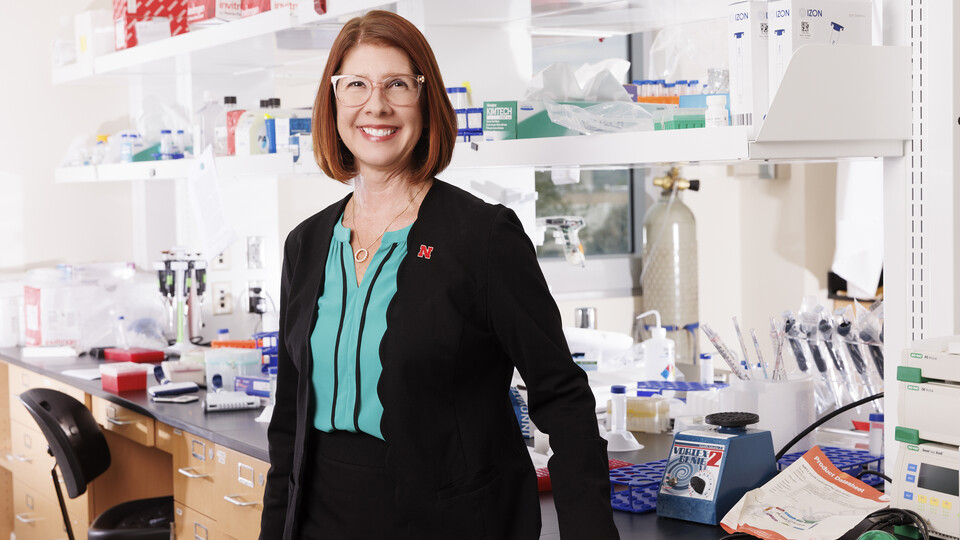
by Dan Moser | Research and Economic Development
Angie Pannier, Swarts Family Chair in Biological Systems Engineering and professor of biomedical engineering, will present the Nov. 17 Nebraska Lecture, “DNA and RNA Delivery: From Novel Therapies to Vaccines that End Pandemics.”
Pannier’s lecture will take place via Zoom from 3:30 to 5 p.m., including a live Q&A.
“DNA and RNA are the genetic warehouses of our cells, responsible for storing our genome (DNA) and then transcribing that genome (RNA) into the molecules that control our life,” Pannier said. “Given that we know the genomic sequence of humans and many pathogens, scientists long have sought to use that information as medicines and vaccines — that is, to realize the idea of gene therapy.
“However, the field had a slow start, and after 30 years, only a few gene therapy products were on the market. Then, in 2020, everything changed, with many of the approved vaccines for SARS-CoV-2 using RNA or DNA delivery.”
Pannier’s laboratory has worked to understand and innovate DNA and RNA delivery, and to develop methods to transfer those molecules more efficiently into human cells. Her talk will describe the history of gene therapy, the events in 2020 that changed the field and the future technologies that will revolutionize medical therapies.
Viewers may submit questions for the Q&A session to unlresearch@unl.edu. The lecture is part of the Nebraska Research Days celebration, Nov. 14-18. The Nebraska Lecture is open to the public, but registration is required to receive the Zoom link.
The Nebraska Lectures are offered twice a year and feature high-profile presentations by distinguished Husker faculty who address topics of broad interest in an engaging, accessible format. All talks are free and open to the public. The talks are streamed online. Regular updates, as well as archived videos from each lecture, are available on the event website. https://research.unl.edu/nebraskalectures/
The Nebraska Lectures: The Chancellor’s Distinguished Speaker Series is sponsored by the Research Council, Office of the Chancellor, Office of Research and Economic Development, and Osher Lifelong Learning Institute.